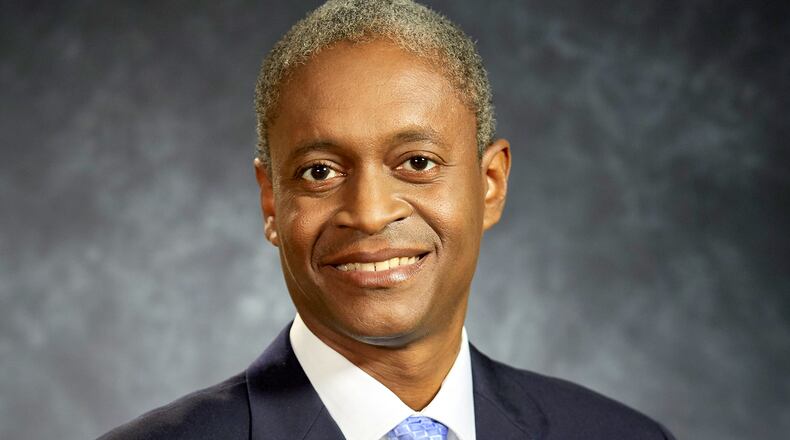The pandemic has intensified inequality in America and, without decisive action by the federal government, many minorities and poor people could be left out of any economic recovery, said the president of the Federal Reserve Bank of Atlanta on Friday.
Nationally, the unemployment rate for white people is 7.5%, compared to 13.1% for Black people and 10.5% for Latinos.
Without going into specifics, Raphael Bostic said Congress and the Federal Reserve need to provide relief for jobless Americans and beleaguered businesses.
Otherwise, even when the pandemic is over, “we’ll have some communities in significant distress,” he said. “We already had the disparities, and the virus has driven a wedge into those gaps. In terms of health quality, in terms of jobs and attainment, in terms of savings and wealth.”
Bostic is the first Black president of one of the Federal Reserve’s regional banks. He’s been vocal in recent months as protests against racial injustice have erupted in numerous U.S. cities. In a message on the Atlanta Fed’s website, he argues that systemic racism in America is not only morally wrong but is a drag on the economy.
While the economic pain from the pandemic is certainly not limited to minorities, Black people and Latinos have been disproportionately affected by layoffs, he said.
“The virus impact is much more acute in minority communities, the African American in particular, but also among Latinos,” he said. “Things are harder in minority communities. We do surveys of low-income neighborhoods. The expectations of how much time it will take for a recovery in minority communities is much longer than elsewhere.”
Meanwhile, Black and Latino workers are performing more than one-third of the jobs deemed essential and are a majority in some sectors, especially food and agriculture, according to an Economic Policy Institute analysis of Bureau of Labor Statistics data.
Earlier this week, Fed Chairman Jerome Powell said in Congressional testimony that the central bank’s capacity to help the economy has limits and Congress needed to act to shore up the economy. The Fed’s newly created Main Street Lending Program, aimed at small- and medium-size businesses, is not enough, he said.
Bostic on Friday praised the emergency measures passed by Congress in March to bolster finances for the millions of Americans laid off, especially the $600-a-week subsidy to the jobless that expired in July.
Congress has been unable to agree on the next round of aid.
With unemployment still high and fears rising of mass evictions, the Atlanta Fed is looking for ways to make loans to banks and small businesses, which could provide help and jobs to Georgians.
"One thing that has become clear here is that far too many families — especially in minority communities — are on the cliff’s edge of resilience,” Bostic said.
More than 3.7 million jobless claims have been processed in Georgia since mid-March, according to the state Department of Labor. While the jobless rate has fallen from 12.6% in April to 5.6% in August, the drop is partly because so many people have left the labor market.
“When I talk with my colleagues across the country, most of them are describing things that are not as intense and difficult as what we see in Atlanta and Georgia,” Bostic said.
The region’s economy is improving, adding about 179,000 jobs in the past four months, but the broad numbers “mask the realities,” he said.
The recovery is on track to aggravate differences between richer and poorer communities, he said: “These layoffs that we thought were going to be temporary are starting to be permanent.”
About the Author
The Latest
Featured

